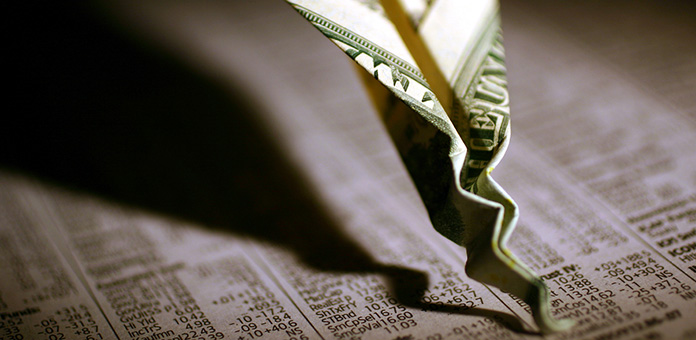
Several factors influence the price of gold, including the fluctuations in the stock market. Investors, particularly banks and institutional managers of large pools of investment funds, are a significant reason this correlation exists. 1
Chasing Short-Term Stock Market Returns
Those who invest in the stock market seek to attract sums of money to consolidate into even larger holdings. They watch the rate of return they earn on those funds monthly, quarterly, and annually. If they fail to achieve gains similar to their competitors, they will shift funds to other asset groups. Most frequently, the difference in success is miniscule and seldom more than a percentage point or two.
This short-term focus on immediate returns is one reason you will see commodities, such as precious metals, face downward pressure when stocks are performing well. Since there is no immediate dividend or earning paid on gold, institutional managers chase yield from other sources.
The Reality of Market Cycles
However, stock market players ignore at least two realities of the marketplace in their nearly maniacal focus on short-term earnings. First, they don’t address the need for portfolio diversification. The more one asset dominates a portfolio, the more it is affected when the market moves against it—and market cycles are a fully accepted reality. 2
Secondly, the equities markets are known for their significant roller coaster rides. As recently as 2008, the Dow Jones Industrial Average plummeted 777.68 points in intra-day trading. By March of 2009 that dive caused holdings in the stock market to drop more than 50 percent. That means millions of Americans who didn’t have diversified portfolios lost more than half of their retirement in about 18 months. 3
Financial advisers continue to guide investors to build portfolios based solely on paper assets, with no regard for those who were pushed out of the market or needed their money during the last crash. This is especially concerning because many financial analysts are predicting that the stock market is heading for another crash.
Stock Market Crash on the Way?
It has been less than a decade since the last market meltdown. It is easy to lose sight of that when so many traders and advisers are blinded by short-term returns. In fact, they feed the hype, setting the stage for an even greater collapse. The question is not if the stock market will crash—but when.
Expert Predictions:
- Jim Rogers 4, the individual who founded the Quantum Fund with George Soros, recently predicted a market collapse of “Biblical proportions,” with losses of more than $68 trillion.
- Highly regarded economist Andrew Smithers has stated 5, “U.S. stocks are now about 80 percent overvalued.” He notes that the only time stocks had comparable risk was in 1929 (80 percent loss of value) and 1999 (a period of more than 50 percent losses).
- Mark Faber stated in a recent CNN interview, “Investors are on the Titanic.”
There are even more respected analysts announcing their concerns weekly, including James Dale Davidson, the economist who remarkably predicted the collapses of 1999 and 2007-2008. He says major indicators are simply screaming, “SELL.”
Of course, these predictions may be wrong or a collapse may not be so severe. However, are you prepared to lose even 25 or 30 percent of your portfolio in just a few days? 6
If your portfolio is not properly diversified, it’s time to take note of these frank market predictions. When converting equities to cash, it is also wise to consider buying gold and silver. Not only does gold & silver protect your portfolio value, they traditionally see marked increases when the markets do decline or collapse.


